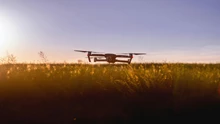
The World Health Organization has found Spirulina to be an excellent food for human consumption and combating night blindness. The World Health Organization (WHO) has found Spirulina to be an excellent food for human consumption and combating night blindness.
Spirulina is a powerful antioxidant that favours the purifying action of the liver and kidneys, protects the nervous system, maintains the right level of sugar in the blood, helps skin elasticity and keeps hair, nails and eyes healthy. It protects the organism from diseases, strengthens the immunity system, increases physical resistance and muscular development.
Cultivating Spirulina has a low environmental impact and supplies more nutrition per agricultural unit of any other food. It does not pollute, erode the soil, contaminate water nor destroy forests. It requires a lot less water and energy per kg of proteins of any other food; it uses 1/3 of the water needed for soy, 1/6 of that needed for wheat and 1/50 of that needed for beef protein.
Spirulina is the most complete and nourishing plant food. It contains three times the protein of meat (up to 65 percent more) and is rich in vitamins, mineral salts, antioxidants, Omega 3 and Omega 6. It contains 45 times the iron of spinach, 35 times the beta-carotene of carrots and 9 times the calcium of milk. In addition, it favours concentration and strengthens the organism.

In India National Research Development Corporation in collaboration with M/s. AMM Murugappa Chettiar Research Centre, Chennai set up a pilot plant for the development of process for the manufacture of Spirulina Algae – the only single, natural source of providing the highest amount of protein even known to man.
NRDC had licensed few more companies in the country and it is expected that the product would help in removing the problem of malnutrition of large section of common people. Patents have been obtained in India and are filed in the European Patent Office (5 countries) and also Canada, China, Bangladesh, Indonesia, Malaysia and Thailand.

The first licensee namely, New Ambadi Estates Ltd. is producing 100 T/annum at Severiyapuram. The Spirulina contain 71percent protein, which is three times that of soyabean, and five times that of meat. The protein quality is among the best with a good degree of aminogram. It contains very high amounts of Beta-carotene, a precursor of Vitamin A. It is the only vegetable source of vitamin B 12, containing two-and-a-half times that of liver. "Spirulina is not native to our country, so we grow it in greenhouses to naturally withhold heat during the warmer months and protect crops from possible aerial contamination. The production of Spirulina is non-extensive, so it doesn't subtract fertile ground from food production. It is cultivated in tanks placed in greenhouses."

In Italy Spirulina K "We don't produce in winter as temperatures are very low and we would have to use energy to warm up the tanks. It would be a contradiction, given the low environmental impact of producing this micro-algae. This year's high temperatures meant we were able to produce from spring until November. We then maintain the algal strain in the colder months and restart production the following spring." "We distribute our products under the ApuliaKundi brand, a start-up founded in 2016 following a long period of study and research," explains Danila Chiapperini, Project Manager and ApuliaKundi co-founder together with Raffaele Settanni, Leo Lo Cicero and Mara Zacchino.
The facility includes a greenhouse dedicated to the production of Spirulina and research of other micro-algae as well as a monitoring, drying and packaging workshop. The production process is entirely natural and sustainable, no herbicides or pesticides are used.
The ethical principle behind ApuliaKundi is that sustainability is heavily linked with eating habits, therefore we all have a great responsibility when we make a choice as consumers. "What we put on the table is the result of a production chain with huge effects on our health, economy and environment. For this reason, the eating culture of the global population needs to change towards a healthier and more sustainable diet."

"We are expanding as demand for pure Spirulina from Italy is constantly on the up. At the moment our products are available on the British market and results are promising. Our turnover has grown by 400 percent compared to last year. In Italy, our products are available in around 70 stores.""We are now working to meet the increasing demand, promote R&D for additional functional products and strengthen our sales network and Internationalization."
"We produce SpirulinaK in sticks and not in tablets, capsules or pills to differentiate it from what already available on the market, which comes mostly from outside the EU."
"Our sales channels are: chemists, herbal stores, para-pharmacies, organic stores and stores dedicated to vegan and vegetarian foods. Our products are not available in normal retail stores, but they are available in chains such as Eataly. In addition, we also sell on our website: www.apuliakundi.it/shop/".
ApuliaKundi's business model focuses on green production. Nowadays, algae cultivation is strategic for agriculture also due to its low environmental impact, considering that agriculture is the main source of consumption and pollution. Cultivating Spirulina contributes to reducing greenhouse gases: every kg of dried algae produced captured 2 kg of CO2 from the environment.

"We research and produce micro-algae, and especially natural SpriulinaK, 100 percent pure and certified organic. In addition, we produce functional Spirulina-based food such as pasta and beer. We want to diversify our product range, so we are planning on introducing other kinds of food on the market." "We started in 2010 thanks to an idea we had while in Malawi. A research team expert in biotechnology assisted us for food quality and safety, environmental monitoring, water treatment and waste storage and management.""In 2012, we saw a tender from Regione Puglia that promoted young ideas for a better Puglia. We started an experimental research field in cooperation with the University of Bari and founded a Research and popular science association that is still active." "We then took part in other national tenders and, in 2015, transformed what was a pilot crop in a research start-up producing Spirulina." "In 2007, FAO defined Spirulina as 'food of the future' for both its nutritional properties and low environmental impact. In addition, considering there are more and more vegans and vegetarians, Spirulina is a great alternative to vegetable protein, essential amino acids and B12."










